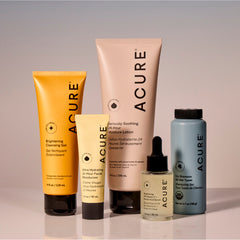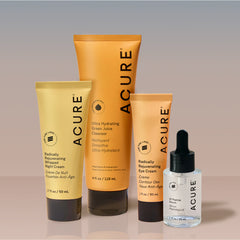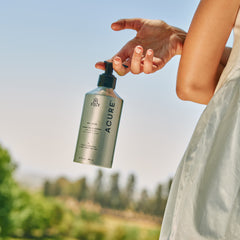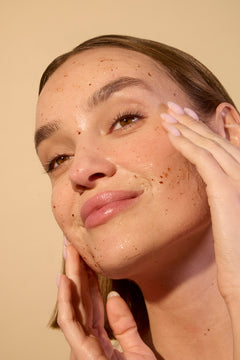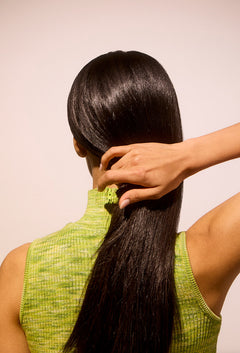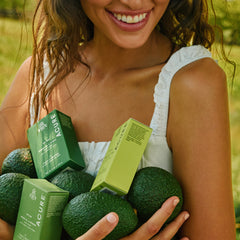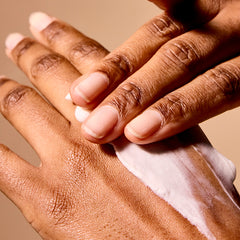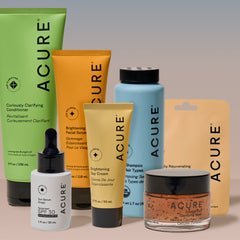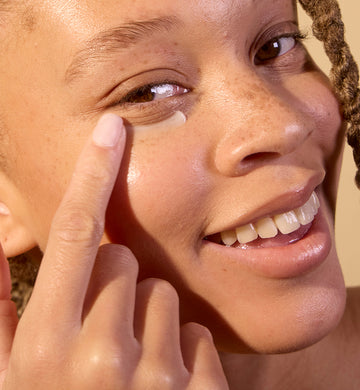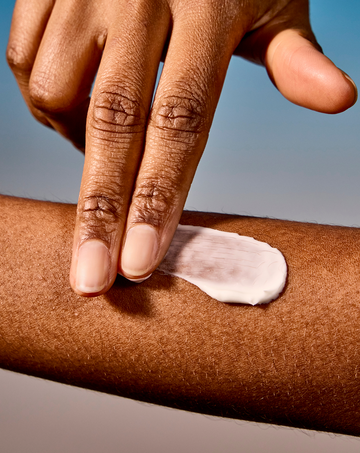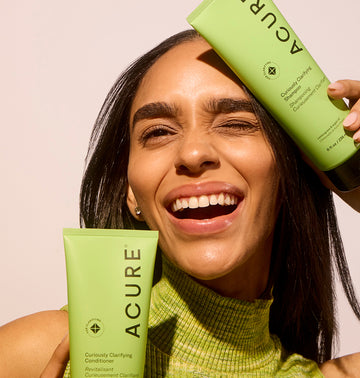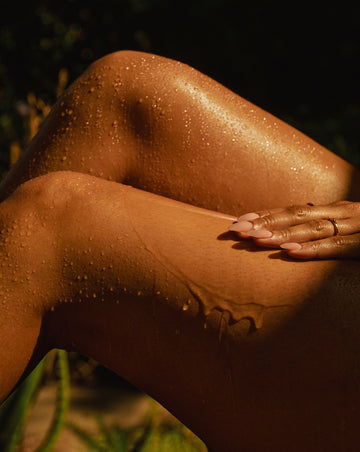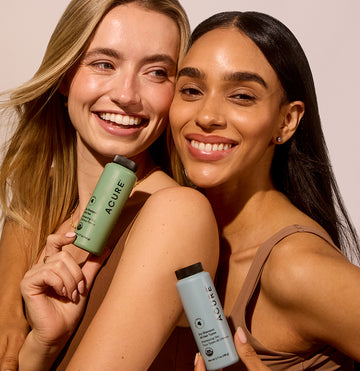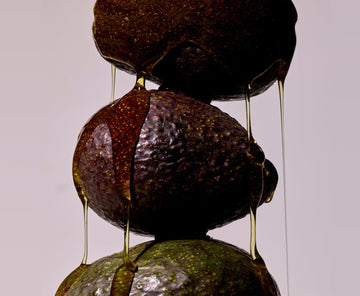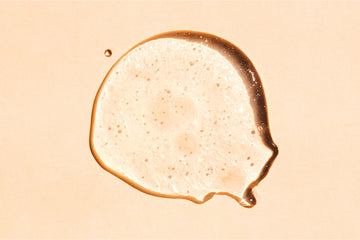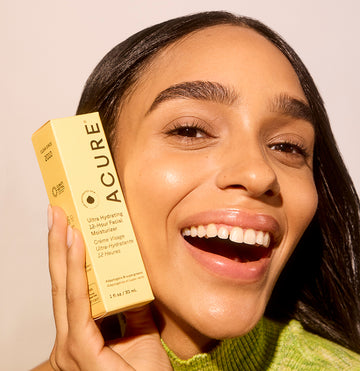In order to experience the magic of retinol (ex. fading fine lines and clearing acne), it’s essential to learn more.
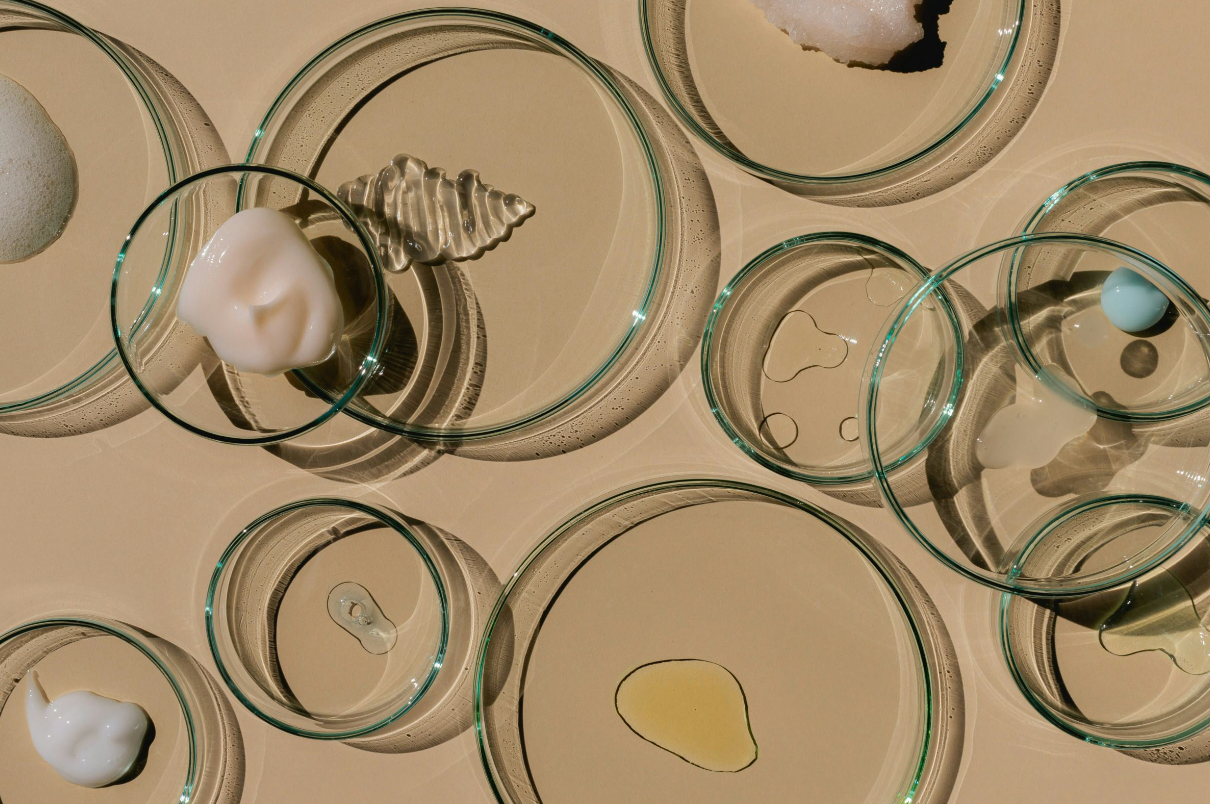
We are all about providing solutions based on your skin concerns. When it comes to fine lines & wrinkles, hyperpigmentation and acne there is a well known powerful ingredient that helps target those concerns; Vitamin A, otherwise known as retinol. Vitamin A offers plenty of benefits for your skin’s health, including speeding up cell turnover, supporting skin’s collagen production in the skin, improving the look of hyperpigmentation, and improving overall appearance of skin’s texture, tone, and firmness.
In this guide we will discuss what you need to know about this ingredient before you get started. We will review the many forms of retinol and the differences between them, as well as which options may be right for your skin type. We’ll also discuss how you can incorporate it into your existing skincare routine.
What is Retinol?
Over the last decade, and especially the last few years, retinol has been on the radar of every skin care enthusiast and newbie alike, but is it just another trending ingredient? The answer is no! In fact, retinol has been around since the late 1950’s, as an ingredient that has been heavily studied, used, and recommended by dermatologists to treat certain skin conditions. So what is retinol? Retinol is a vitamin A derivative that helps cells regenerate and is best known for its anti-aging properties.
How Does Retinol Work?
When we discuss retinol for this piece, we will concentrate on its well-known application of helping to minimize the look of fine lines and wrinkles. As we age, our skin’s collagen production decreases and leads to the natural formation of fine lines and wrinkles. When applied topically, retinol stimulate skin’s natural regenerative process and support skin’s collagen production. Combined with the increased turn-over rate, this helps to reduce the appearance of visible signs of aging (fine lines and wrinkles), as well as aid in smoothing and brightening the complexion. Retinoids also need to be broken down before your skin can start using them, which means it can take time to see results. For faster results, there is Retinoic Acid, which is a prescription strength retinoid (such as tretinoin, retin A, retnova) and is 20x more potent than retinol. This is a strength that should only be prescribed and monitored by a dermatologist.
Differences between Retinol, Retinoids, Bakuchiol, & Encapsulated Retinol/Retinoids

What is Encapsulated Retinol?
Acure utilizes encapsulated retinol and encapsulated retinoid (both forms of retinol), which is created when retinol is surrounded by a lipid or fatty acid molecule. Because of this encapsulation, it is gradually released into the layers of the skin, making it a more gentle and potent delivery system to the skin. Another great benefit of encapsulated retinol or retinoid is that thanks to the slower time release, it is more stable and less irritating than typical retinol. This makes encapsulated retinol or retinoid a great option for those with sensitive or reactive skin types.
What Skincare Benefits Does Retinol Provide?
Retinol increases turnover as well as supports skin’s collagen production. It combats acne by unclogging pores and reducing existing acne. It also can reduce signs of sun damage, like hyperpigmentation and uneven skin tone. Overall it helps to rejuvenate and brighten the skin while reducing signs of inflammation.
How Can I Add Retinol to my Skincare Routine?
It is best to slowly introduce retinol and work your skin up to using stronger retinoids as needed. This will minimize side effects like redness, peeling, burning, itching, scaling and sensitivity that can arise when using retinoids for the first time. A great beginner option is our Revived Radiance Overnight Mask, as it incorporates encapsulated retinol with hydrating properties like upcycled avocado oil. It is also best to use retinol products at night and alternate usage. The most important aspect to remember is to always apply SPF during the day to protect your skin from the sun. A great everyday sunscreen is our Radically Rejuvenating SPF 30 Day Cream.


Is Retinol Safe for all Skin Types?
If your skin is compromised, e.g., conditions like eczema and psoriasis, or if you have more of a sensitive skin type, our Radically Rejuvenating Dual Phase Bakuchiol Serum, might be a better solution. Bakuchiol is also a safe option to use during pregnancy and breastfeeding if someone is looking for a “retinol-like” alternative.
What Should I Do If My Skin Reacts to Retinol?
First, stop using the retinol or retinoid. Reactions are more likely to occur with higher strength percentages, like prescription retinol vs. encapsulated retinol products, bakuchiol or HPR. Be sure to use a moisturizer to hydrate and protect your skin barrier, like our Ultra Hydrating Overnight Dream Cream, that incorporates hydrating, calming properties. If irritation continues, consult your dermatologist for the best products for your skin type.


How To Choose The Best Retinol Products For My Skin
While it’s important to understand your skin type & specific skincare needs, and it can be helpful to consult a dermatologist if you’re unsure what to use, ultimately a bit of trialing will need to be done as you figure out what works best for your skin type.
We encourage you to explore our line up of retinol, retinoids, and bakuchiol products to see which option might be right for you!
Source: Dr Rachel Ho | The Beginner’s Guide to Starting Retinoids
All information, content, and material of this blog is for informational purposes only. This blog provides general information and discussions about health and beauty related subjects. The information and other content provided in this blog or in any linked materials are not intended and should not be considered, or used as a substitute for, consultation, medical advice, diagnosis and/or treatment of a qualified physician or healthcare provider.
